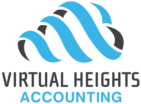Cash controls are the controls used in a business to protect a business from cash theft and mismanagement. In a previous blog (Fraud in Small Business), I discussed how a front desk / bookkeeper stole cash from the business. Ultimately, the reason this occurred was a lack of cash controls. Each business is different and each should assess their own cash controls. However, I wanted to provide a quick guide on cash controls that could assist a business owner in looking at their own processes.
Cash Controls
Separation of Duties
This is a big one but is also the hardest one when you are small and have limited staff and resources. The basics are that you should separate the ones who are handling cash and the ones who are performing the bookkeeping/accounting functions. In the fraud case I refer to above, the administrator who accepted cash from the customers also entered the transactions in the books. This allowed her to hide her activities for longer.
Physical Security
This includes using safes for cash onsite and (locked) registers. Cash is easy to nab and should be under lock & key whenever possible. I have clients that use an open cash drawer during operations as they argue it is too busy to be opening and shutting a register. This is not ideal (and we usually discuss that) however they typically argue it is the standard for their industry. The key in this case is to know the risk and ensure proper other controls like reconciliations and even video monitoring systems. This way any shortages can be identified as quick as possible and traced to their source.
Daily Cash Sheets and Reconciliations
I worked as a lifeguard (once upon a time) and remember doing the daily cash sheets at the outdoor pool. Ironically, I never minded doing them and that may have been an early indication of my future in accounting. Most business owners I know, especially in high cash industries, hate the dreaded cash sheets.
Today cash drawer management does not need to be as tedious as it once was. Register automation like Square and Shopify can help you automate this process. I also recommend having your closing staff doing these duties as they then are part of the process. Closing staff should also be different from your opening staff to have a secondary check of the float. This can keep everyone more honest.
Petty Cash
Petty cash should also be reconciled and a close eye should be kept on those with access to the petty cash account. If money comes out of petty cash, staff should know that a receipt is required. If there is no receipt it is not deductible for tax purposes plus you have no way of knowing if the money went where it was supposed to go.
Deposits
Regular deposits should be made as to not have a significant amount of cash on hand. Keeping cash on site low also acts as a deterrent for would be burglars (in addition to security and alarms). The best prevention is to not make the bounty worth the trouble.
These are just a few control areas. In looking at your own systems, the best place to start is to map out your cash process from collection to deposit. This includes how the amounts are entered for the accounting system. Identify gaps and holes in the system and try to have compensating controls in those areas.
I often have business owners tell me they do not worry too much about this because they have great staff. But in my experience, once the processes are learned, staff often thrive much better in the controlled environment. It becomes part of their job and they also know there is no (or less) suspicion on them if cash does go missing. It is not about trust, it is about continuity and process. Even great staff sometimes leave and every business should position themselves for growth which means having good controls.
This is not an exhaustive list and just glosses the surface of true cash management and controls. As noted, every business is different and what works for one owner/manager may not work for another. Assess your own controls and if you want a second opinion, call Alissa at Virtual Heights Accounting for a consultation. I am happy to chat.
If you would like more great insights or tips on everything small business, tax and accounting or to just connect. You can also follow us on twitter at @vhaccounting.ca, on Facebook at www.facebook.com/vhaccounting.ca, or follow me Alissa Bryden, CPA on LinkedIn (https://www.linkedin.com/in/alissabryden). Lot’s of way’s to connect!





